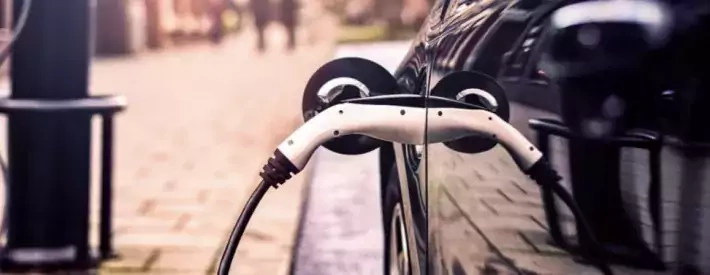How the IMI is feeding EV discussion and the House of Lords inquiry

The IMI has submitted its findings to the House of Lords EV inquiry, shedding light on a multi-faceted approach to the ongoing transition to electric vehicles in the UK.
As the world accelerates towards a greener future, the IMI's insights illuminate the challenges and opportunities the EV market offers, something that’s incredibly important for the House of Lords to understand, but also the wider automotive industry and the general public.
Here’s what we think the most important aspects are:
1 Skills and maintenance
The IMI has highlighted that the extension of the transition period for adopting EVs might elevate maintenance and repair costs. As vehicles evolve in complexity, so does the skillset needed to service them. One particular observation was that EVs are statistically more prone to failing their first MOT than their petrol counterparts. This raises questions about the preparedness of motorists and their responsibility in maintaining EVs and the implications for road user confidence and safety.
2 EV market dynamics
The IMI provided insights into acquiring EVs, pointing out the barriers, including the high costs associated with electric mobility. Suggestions were made to enhance the uptake of more affordable transport solutions like heavy quadricycles. With urban areas like Wales implementing reduced speed limits, such vehicles could be pivotal in achieving emission reduction targets. The data also touched upon the Motability scheme and its challenges, emphasising the need for robust on-road charging infrastructure.
3 Consumer hesitations
The IMI pinpoints two primary concerns from consumers: range anxiety and repair anxiety. The former relates to the fear of running out of battery mid-journey, and the latter concerns the availability and affordability of repairs for older or budget EVs. These concerns, coupled with the complexities of maintaining EVs, have been identified as significant barriers to widespread adoption.
4 Government's role
How is the government ensuring the affordability and accessibility of EVs? The IMI suggests that increased support for training and equipping professionals would lead to more consumer choice and accessibility. An intriguing point made was the consideration of Super Deduction, potentially expanded to include training that assists in achieving net-zero emissions.
5 EV offerings and affordability
There's a keen focus on the availability and affordability of EVs in the UK market. IMI’s submission hints at the challenge the UK faces in terms of the cost of locally manufactured electric vehicles when compared to cheaper international alternatives. The submission raises questions about the sustainability of the UK market and potential implications for job losses within the supply chain.
6 Alternative transport models
Micro-mobility and personal light electric vehicles were under the spotlight, emphasising their potential in reshaping urban mobility. The IMI suggests implementing regulations, especially surrounding battery manufacturing and safety inspections, which are paramount for broader acceptance and safe integration into the transportation ecosystem.
7 Second-hand EV market
The IMI's research indicates that the UK is on track concerning skilled professionals for maintaining an electrified car parc. However, the residual value of EVs and the recovery of critical minerals from them poses questions about the second-hand EV market dynamics.
8 End of life disposal
Touching upon an often-overlooked aspect, the IMI discussed end-of-life management for EVs and their batteries. Emphasis was placed on the importance of recycling, with the IMI collaborating with organisations operating in this sector.
9 International perspectives
Highlighting its global mission, the IMI discussed its collaborations, particularly emphasising its joint initiative with the UK’s Department for Business and Trade to assist with EV Technical and Vocational Education and Training in China. This initiative underscores IMI's commitment to setting benchmarks in automotive skills on an international scale.
The IMI's comprehensive submission to the House of Lords Inquiry serves as a roadmap of the challenges, needs, and solutions for a successful EV transition in the UK. It underlines the necessity for skilled professionals, the challenges in consumer adoption, the importance of affordability, and the role of both the government and global partnerships. As the UK drives towards a greener future, the insights provided by the IMI will undoubtedly play a crucial role in shaping the nation's EV journey.
Hayley Pells is Policy and Public Affairs Lead at the Institute of the Motor Industry




